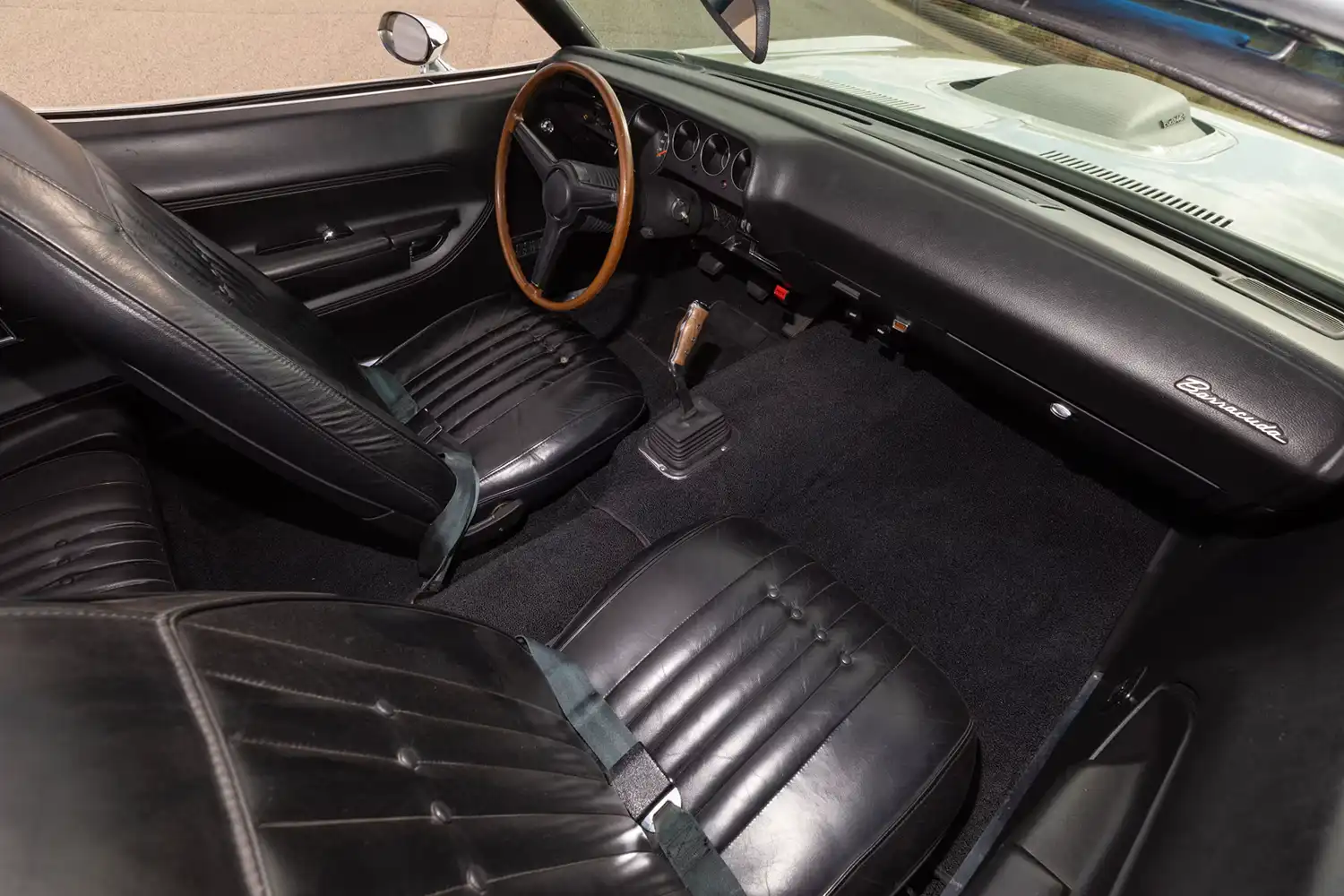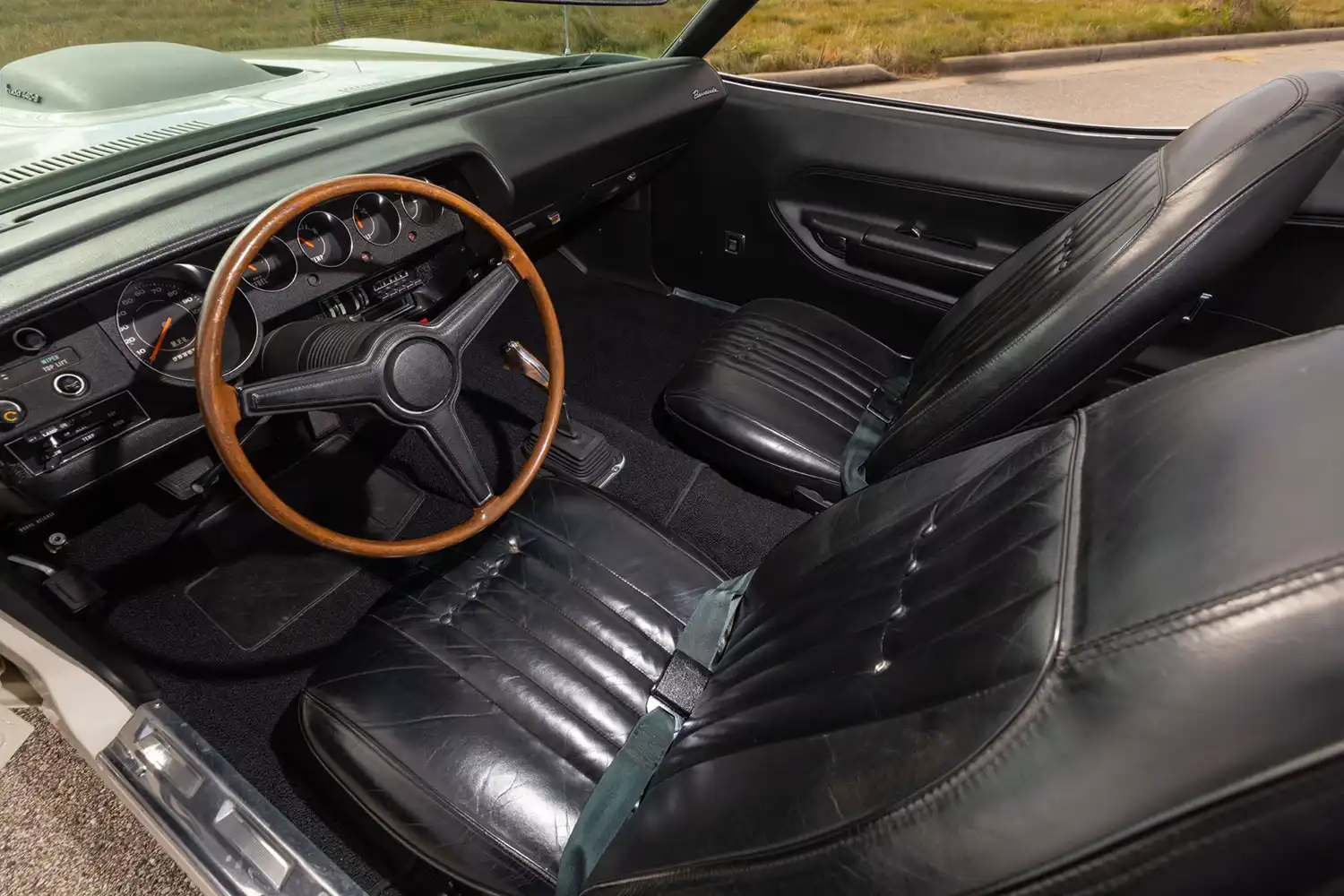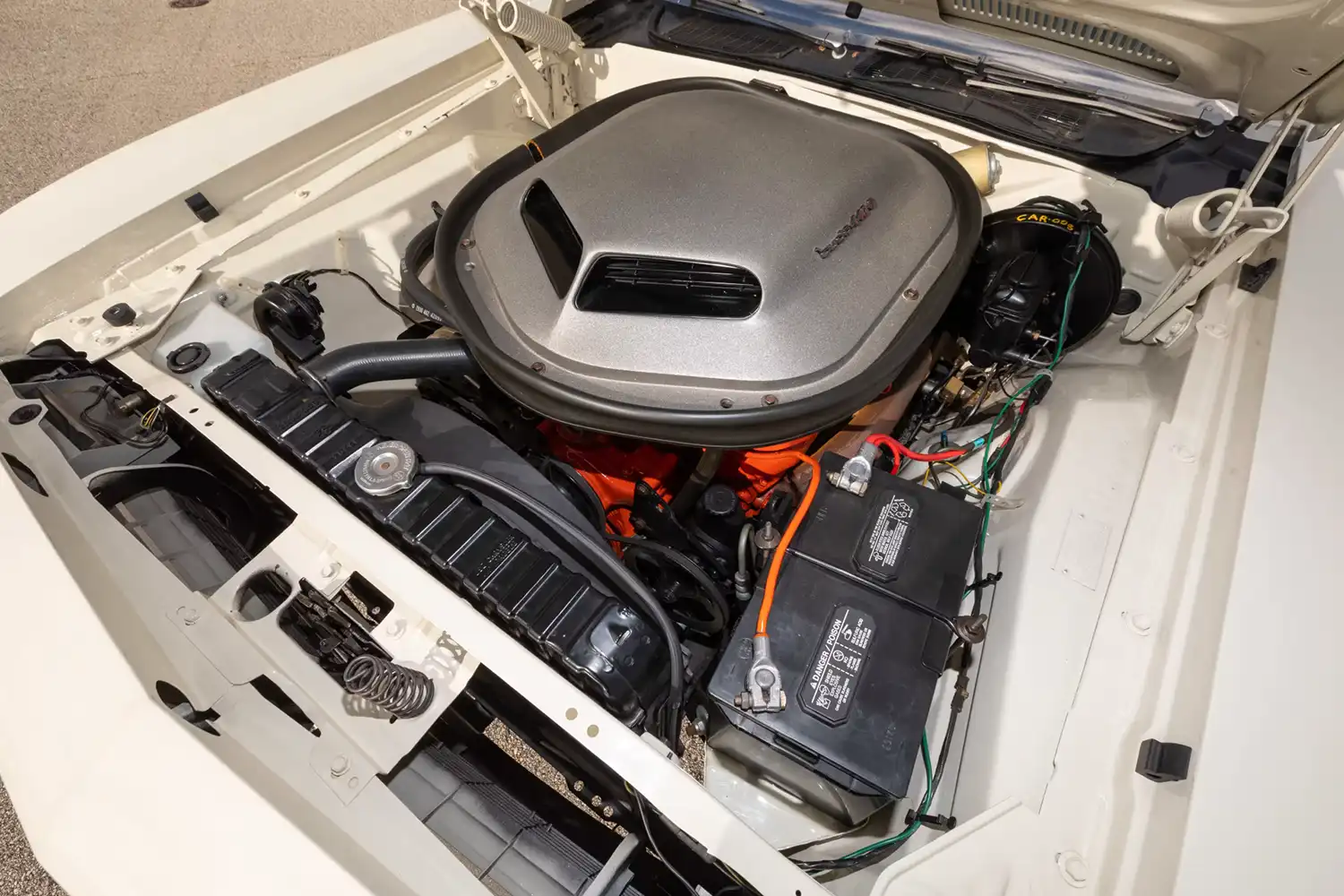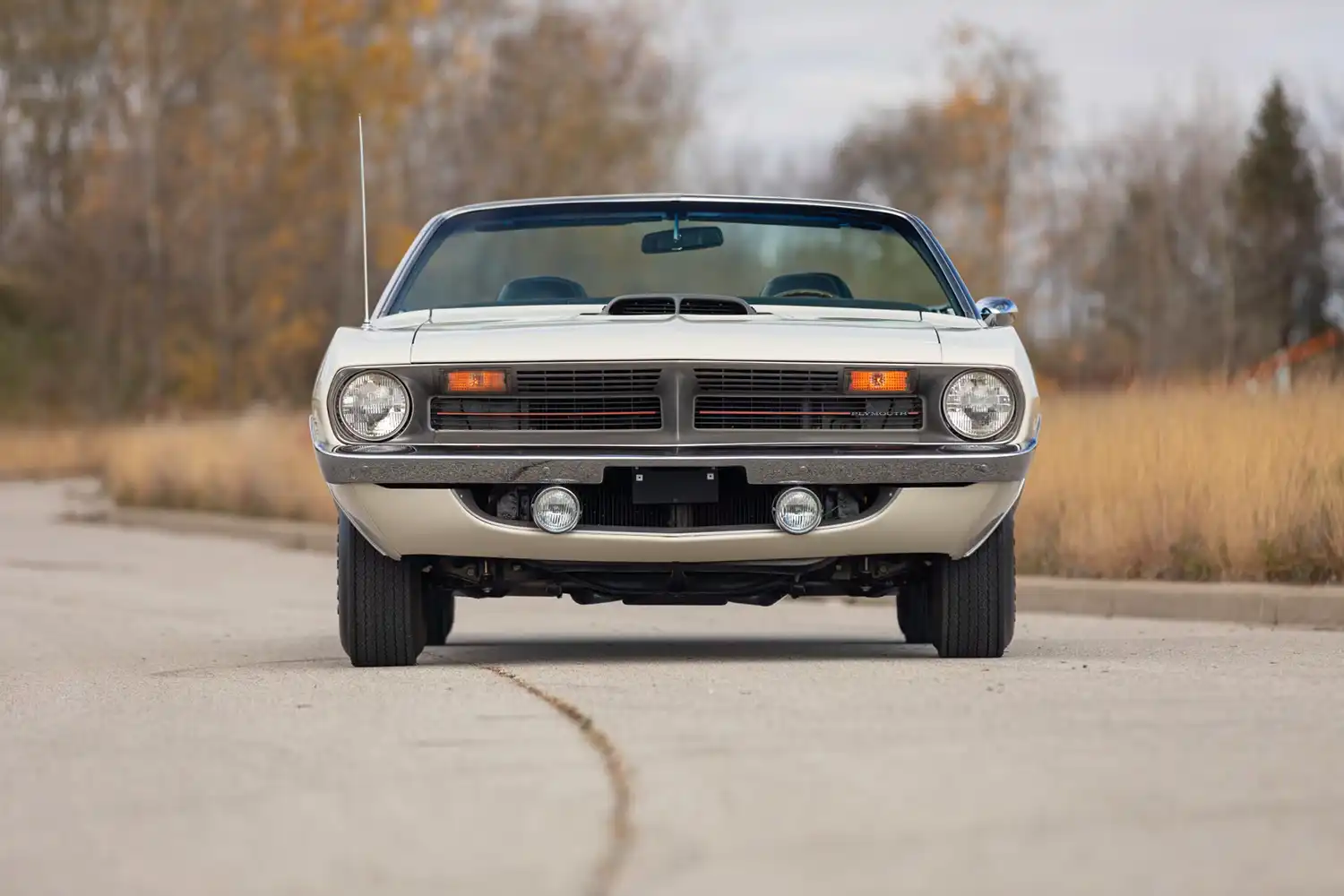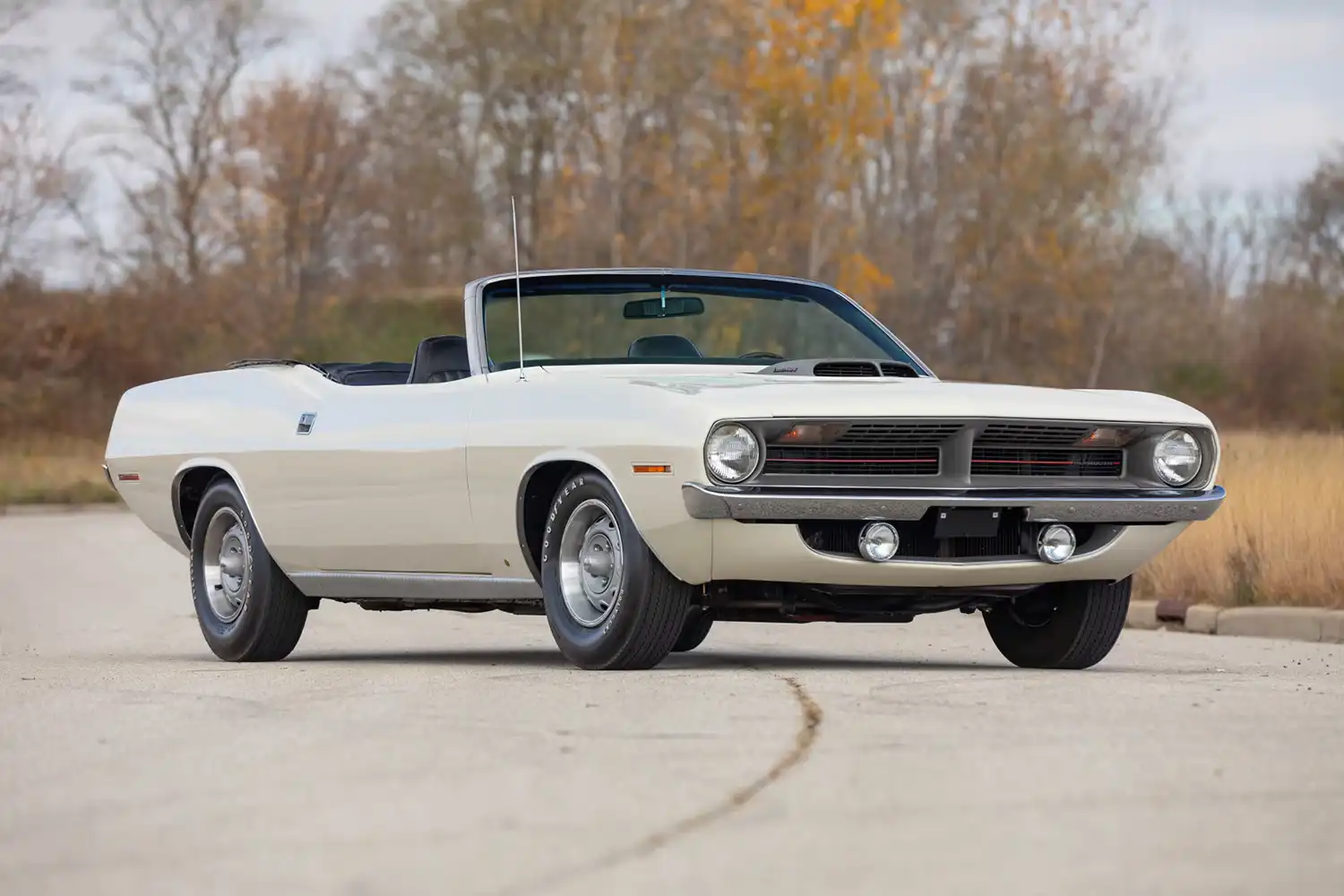
Full details & bid : mecum.com
The 1970 model year marked a significant evolution for the Plymouth Barracuda, with the introduction of the new E-body platform. Sharing its underpinnings with the Dodge Challenger, both vehicles were produced at the Hamtramck assembly plant. Bearing the low VIN sequence of 100004, this particular Plymouth pilot car was the eighth vehicle off the production line and one of the very first to carry the iconic Cuda name. Its significance is further amplified by the fact that it is the first convertible model equipped with the formidable V-Code 440 Six Pack engine.
The Cuda, positioned as a distinct and high-performance version of the Barracuda, represented Plymouth’s prominent entry into the fiercely competitive muscle car market of the early 1970s. It boasted several new options that were not available in previous iterations. A visually striking addition was the “Shaker” hood scoop, which directly connected to the engine and protruded through a wide opening in the hood. The aggressively sculpted body lines were perfectly complemented by this iconic hood design.
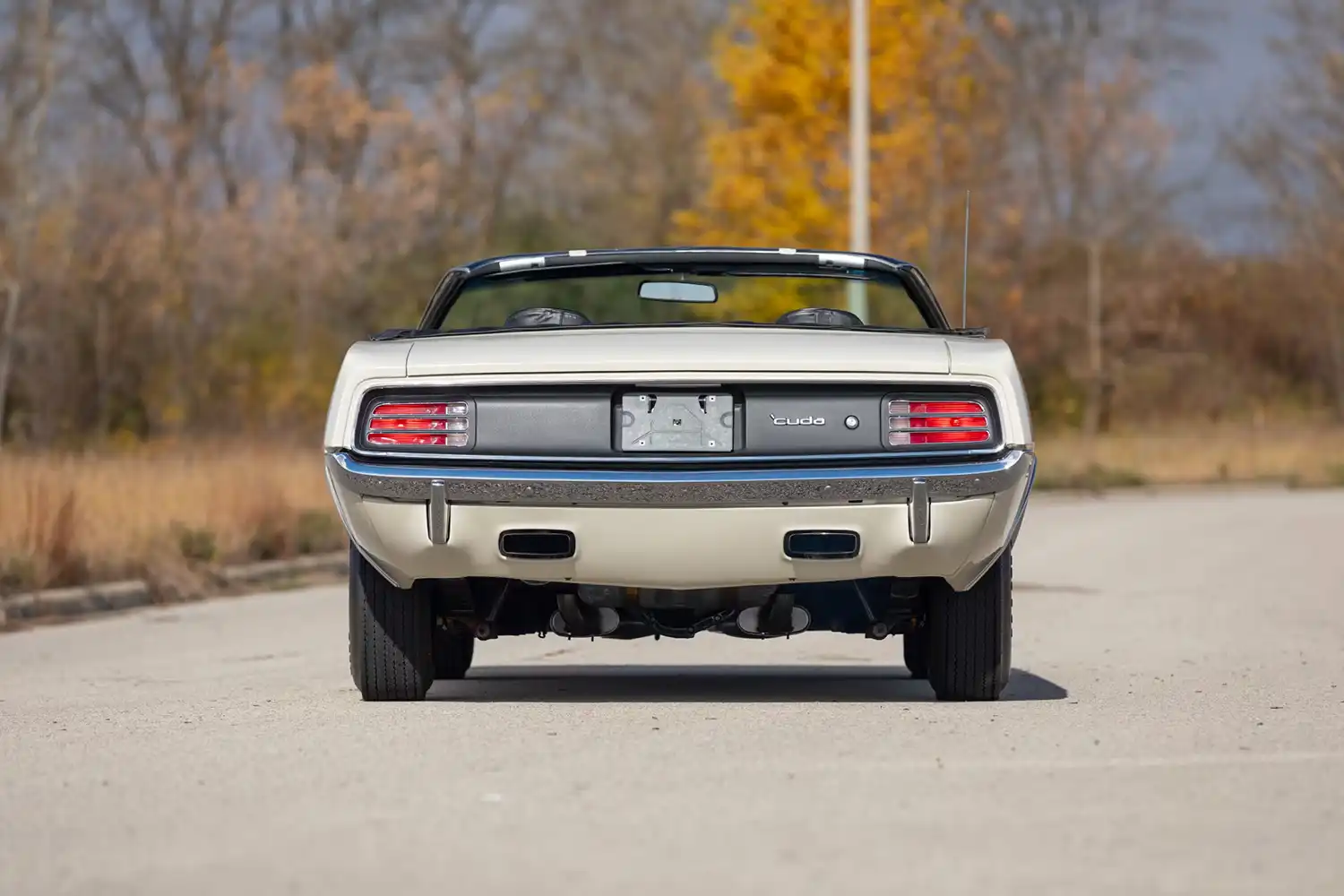
Beneath the Shaker hood resided the newly developed 440 Super Commando engine, featuring a 3×2 Holley carburetor setup that boosted its power output to 390 HP. For many enthusiasts, this engine offered a compelling alternative to the more expensive Hemi, delivering comparable street performance with potentially easier maintenance. However, the cost of such performance options, including the convertible top, pushed the price of Cuda convertibles beyond the reach of many buyers at the time. Additionally, substantial increases in insurance premiums that took effect that year further deterred potential customers. Consequently, by the end of the 1970 model year, only a mere 17 Cuda convertibles equipped with the 440 Six Pack engine and a 4-speed manual transmission were produced. Notably, 16 of these were assembled after this specific pilot car rolled off the line on Saturday, August 1, 1969.
Pilot cars, such as this example, often possess unique characteristics and components that differ from standard production vehicles. A notable example on this Cuda is the Dutchman panel located between the rear window and the decklid, which is not the standard production part and exhibits slightly smaller dimensions. Furthermore, the code V68, which dictated the deletion of side stripes, was reportedly not utilized once regular production commenced. Additionally, two other codes present on the fender tag were stamped incorrectly, highlighting its pre-production status. Despite these anomalies, this particular car presents a singular and striking appearance, strongly suggesting that it was specifically built to evaluate various appearance and option combinations for the new model.
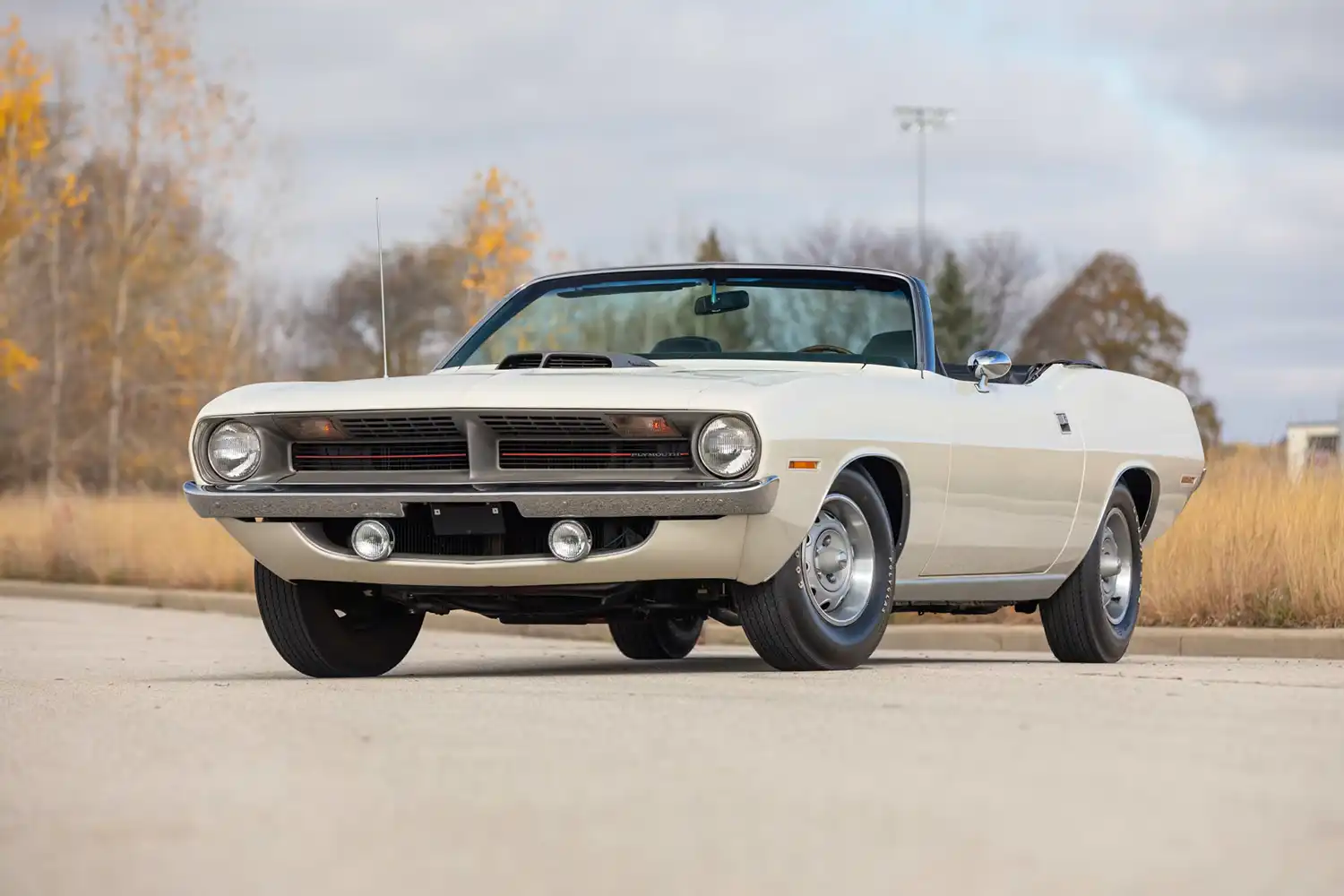
The exterior of this pilot car is finished in a clean EW1 Alpine White, which, combined with the deleted side stripes, creates an understated yet powerful aesthetic. The power-operated black convertible top provides a stunning contrast to the white body, a theme that is further accentuated by the blackout tail panel, the inset grille, and the judicious use of chrome and color accents. The car rides on Rallye wheels fitted with period-correct Goodyear Polyglas tires. Additional exterior features include road lamps and a driver’s side remote outside racing mirror, while chrome exhaust tips exiting from the rear valence complete the overall look.
The interior of this 1970 Plymouth Cuda Convertible Pilot Car, bearing the serial number BS27V0B100004, also showcases unique and upscale options. These include PRX9 Black premium-grade leather bucket seats, P31 power windows for added convenience, and the aforementioned P37 power convertible top. The car is also equipped with power steering for easier maneuverability and power front disc brakes for enhanced stopping performance. For in-car entertainment, it features the deluxe R22 AM/8-track stereo system. A quintessential element for muscle car enthusiasts of the era is the new Hurst Pistol Grip shifter, which elegantly complements the wood-grain steering wheel. The Pistol Grip was a standard feature on 4-speed models that year, and in this Cuda, it is paired with a robust Dana rear axle. The vehicle also benefits from performance cooling equipment, including the high-capacity 956 radiator.
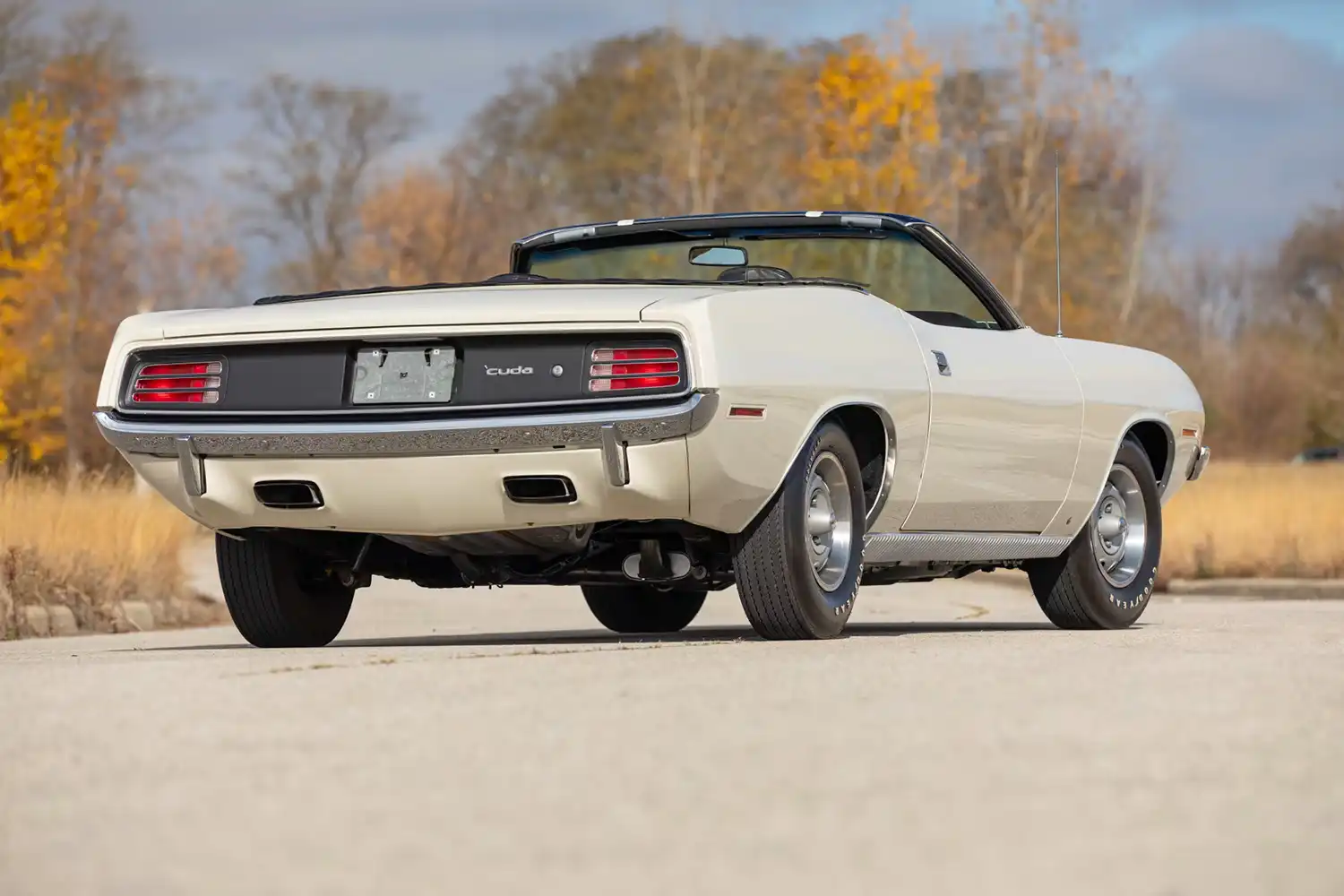
Interestingly, only two white 440 Six Pack 4-speed Cuda convertibles are known to have been produced, making this pilot car even more exceptional. This understated color combination belies the extreme performance capabilities of the vehicle, perhaps making it appealing to someone with executive-level taste who appreciated the potential for rapid travel. Following a comprehensive restoration in 2005 by Rocket Restorations, LLC in Olympia, Washington, this 1970 Plymouth Cuda Convertible Pilot Car represents a remarkable opportunity to acquire a historic, exceedingly rare, and, most importantly, the very first example of one of Plymouth’s most highly sought-after vehicles.
Power and Performance Highlights: This 1970 Plymouth Cuda Convertible Pilot Car is powered by a V-Code 440 cubic inch V-8 engine featuring the legendary Six Pack induction system, utilizing three 2-barrel Holley carburetors. This potent setup delivered a factory-rated output of 390 horsepower, providing substantial torque and impressive acceleration. The engine is paired with a 4-speed manual transmission, offering a direct and engaging driving experience. The inclusion of a Dana rear axle further enhances the car’s performance capabilities and durability. The performance cooling equipment, including the 956 radiator, ensures the engine can maintain optimal operating temperatures even under demanding conditions.
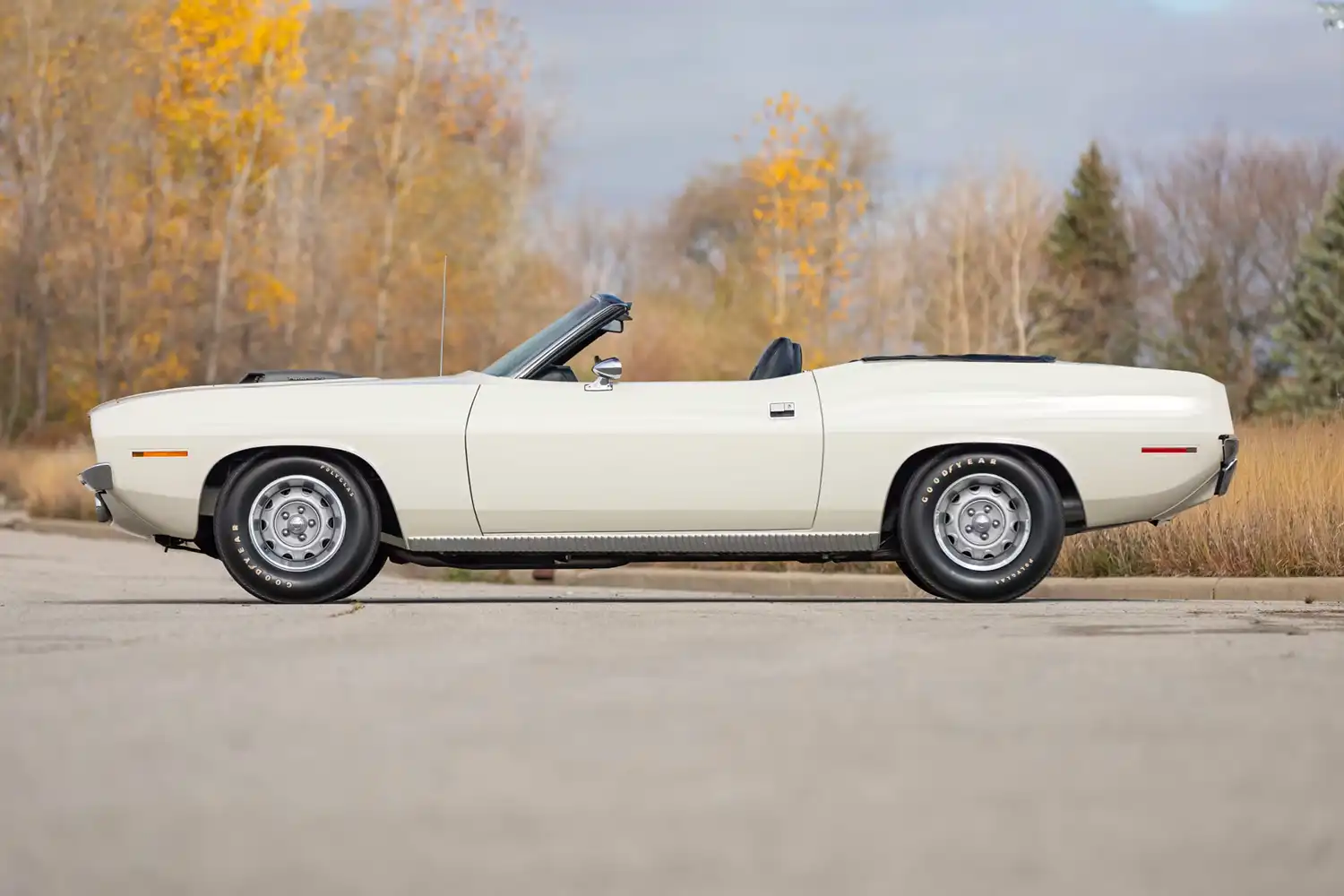
Summary:
- 1970 Plymouth Cuda Convertible Pilot Car, serial number 4.
- The first 1970 Cuda Convertible produced with the V-Code 440 6-BBL engine.
- Built on August 1, 1969.
- Restored in 2005 by Rocket Restorations, LLC.
- Features a 440/390 HP V-8 Six Pack engine and a 4-speed manual transmission.
- Finished in Alpine White with a black convertible top and black leather interior.
- Equipped with a Shaker hood, Pistol Grip shifter, and power windows.
- Includes a Dana rear axle and performance cooling.
- Unique pilot car features include a non-standard Dutchman panel and stripe delete.
Disclaimer: Information provided is based on historical documentation and available records. The “first produced” claim is based on current knowledge and may be subject to revision with further discovery.
AI Assistance: Gemini
